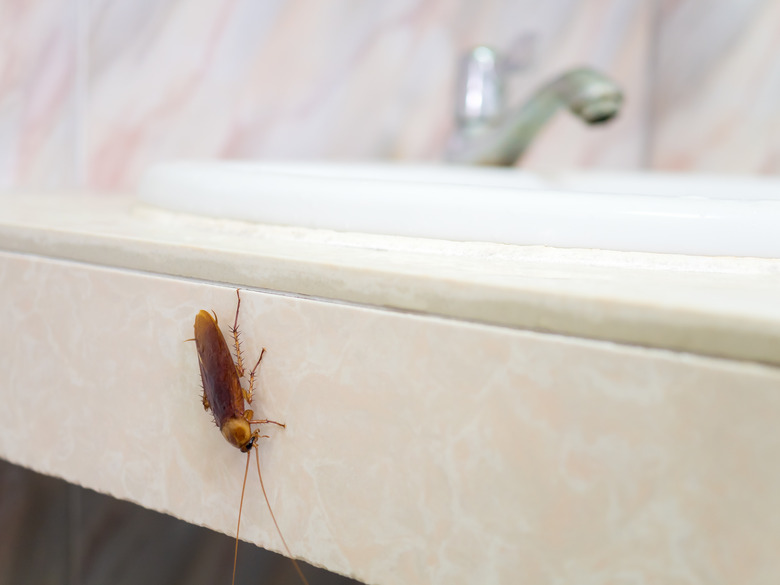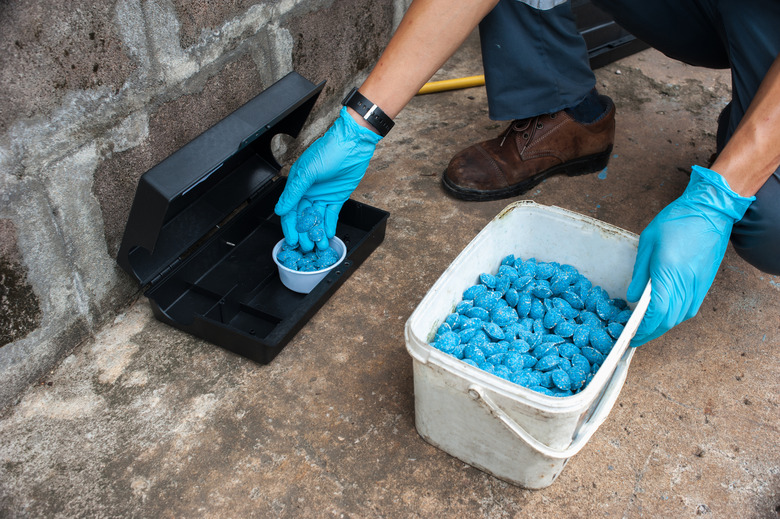6 Things To Expect During Professional Pest Control Service
When you're dealing with a pest infestation, a pest control service is often the best option to ensure the creatures are fully eliminated from your home, but if you've never hired a pest control company, it can help to know what to expect. Your experience will generally start with a free inspection, but from there, the process will vary greatly depending on what services you require. You may need to prepare your home before or after the treatment, and you may even need to make plans to leave the home for days at a time. Surprisingly, in the days following the pest control services, you may even expect an increase in pest activity.
1. A Free Inspection
1. A Free Inspection
It's often a good idea to request inspections from a few pest management companies. Inspections should always be free, and by calling a few contractors, you can not only shop around for the best pricing but also get a few expert opinions on the severity of your pest problem and the proper treatments. This way, you can identify if one of the companies is leaving something out of its treatment plan or if someone is trying to upsell you on unnecessary services.
The inspector should do a thorough inspection inside and outside the home, looking for potential pest entry points, conditions that may attract pests, signs of pest infestation and any damage done by the pests. To do this, the inspector may need to gain access to areas such your crawl space, attic and roof.
After the inspection, the inspector will let you know what they have found and will create a treatment plan to get rid of the pests. They will then let you know how much the services will cost and provide you with an itemized estimate detailing each aspect of the job, which could include sealing points of entry, eliminating conditions that attract pests, a single treatment, cleanup services, repair services and/or a recurring treatment service to keep the pests out of your home.
They should also tell you if you need to do anything to prepare for the treatment and will spend time answering any questions you have about the extermination process, charges, warranty, pests and more. Some inspectors will even provide you with information on DIY efforts you can take to prevent future infestations, such as sealing entry points.
While some inspectors are also certified exterminators and will be doing the treatment immediately after an inspection, they should never push this option on you. If you want to get estimates from other companies, simply say you will schedule an appointment later if you decide to choose that company's services.
2. Prep Work Before the Treatment
2. Prep Work Before the Treatment
Some treatments require no preparation at all, and you may only need to leave your home for 20 minutes or so. Other treatments may require you to do some work ahead of time to help keep yourself and your family safe or to increase the effectiveness of the service. Because pest control services can vary greatly, it is important that you get this information from the inspector prior to the treatment.
In some cases, the inspector may recommend that you mop prior to a pest control treatment because it helps the poisons to better stick to the floor, making it more effective. On the other end of the spectrum, preparing for fumigation requires the most extensive preparation because you need to make plans for yourself, your pets and even your plants to be out of the house during the treatment. You can also expect to trim plants away from the side of your home, bag or remove all food and medicines in your home, arrange for the gas to be turned off and on before and after the service and soak the soil around your home with water immediately prior to treatment.
3. A Thorough Explanation on the Day-Of
3. A Thorough Explanation on the Day-Of
On the big day, the technician will look through your home and talk with you to see if anything has changed since you had your initial inspection to ensure any newly infested areas are also treated. (This is unnecessary for fumigation services.) The technician will also verify that you followed all proper pre-treatment suggestions to ensure the service will be effective and safe. Finally, the technician will advise you on what you should or shouldn't do after the treatment and if you need follow-up services, when and how those will take place.
What happens next will vary dramatically based on what services will be performed. For many pests, such as carpenter ants and rats, the process will include not only killing all of the pests in the home but also sealing crevices, gaps and other spaces they use as entry points. For fumigation services, it will involve laying tents over the whole home and then releasing the fumigant into the structure.
After the work is complete, the homeowner will be provided with a report stating what was done during the visit along with aftercare instructions and a warranty if any was provided.
4. Results May Happen Slowly
4. Results May Happen Slowly
It's important to recognize that unless you had fumigation services performed, the effects are not immediate, and in fact, many pesticides are designed to be brought back to a creature's home. It can take up to six weeks for ants, large cockroaches, spiders, silverfish, carpet beetles and more to be fully exterminated and four weeks for rats, mice and fleas. Interestingly, you may notice an increase in pest activity for the first few weeks after a treatment as the creatures attempt to escape the poisoned area.
With insects in particular, it's important to recognize that you may occasionally see a single bug in your house. That doesn't mean that the treatment failed but that a bug may have simply managed to get in through an open door or window. If you see a lot of insects a month after your treatment occurred, though, you should call the pest control company and let it know about the problem. Whatever you do, don't use over-the-counter pesticides to treat the problem, as these may reduce the effectiveness of the extermination company's treatment.
For the first month or so after perimeter spray treatments, you can mop and vacuum but avoid mopping or otherwise cleaning the areas around the perimeter of your room, particularly toe kicks and baseboards. These areas are where these pesticides are applied and by cleaning this area, you will be removing or watering down the pesticides.
5. Safety Warnings about Pesticides
5. Safety Warnings about Pesticides
Many treatments are safe for humans and pets as soon as they dry, which could be as little as 20 minutes. Bait poisons and all types of traps may present dangers to children and pets, though. If part of your treatment plan includes the use of these products, it is important that your pest control technician go over these details with you and tell you exactly where these devices have been placed. Generally, traps and bait poisons will be placed where kids and pets can't easily get to them, but it's important to keep your vulnerable family members away from these areas until the exterminator removes them from your home.
Some spray pesticides continue to present a danger to kids and pets for days or even weeks, so be sure to verify the safety of any products used in your home prior to their use. If these products are used, they typically pose only a limited risk to animals larger than rats after a few days, but it's still best to keep your children and pets away from areas as long as the technician advises you to do so.
6. There May be Ongoing Maintenance
6. There May be Ongoing Maintenance
If the pests in your home are common in your area, you may consider an ongoing treatment schedule. As an example, fire ants are a year-round problem for homeowners in Florida, so trying to keep them away requires continual treatments. Many of these ongoing services require treating only the outside of your home with products that create a barrier to critters trying to enter your home, while others involve the use of bait traps. In cases involving termites, an inspector may regularly check for new infestations and do spot treatments as needed. Generally, prevention services occur every 90 days.
References
- Preventive Pest Control: Top 7 Things to Always Expect from a Pest Control Company
- Western Exterminator Company: The Termite Fumigation Treatment Process
- U.S. News & World Report: What to Know Before Hiring a Pest Control Service
- All Things Pest Control: What To Expect After A Pest Control Treatment
- StopPestInfo: Exterminators
- Pests.org: What Do Pest Control Companies Do? What Should You Expect?
- Orkin: The Orkin Treatment Solution

